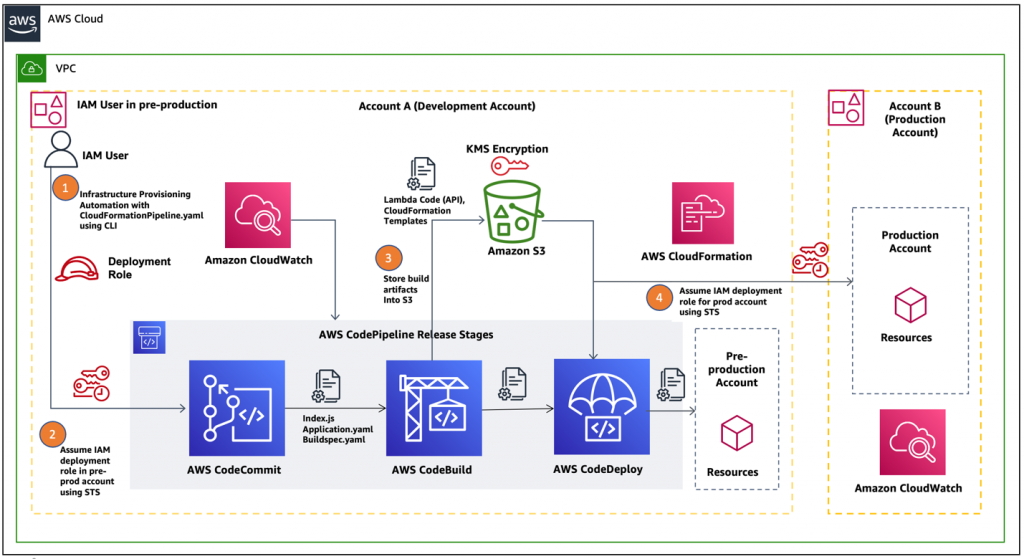DevOps
Our DevOps practices help you architect, deploy, and optimize your applications at a faster pace. We work closely with your team to understand your goals and requirements, and then design and implement a DevOps strategy that aligns with your business objectives.
BENEFITS
Well-Architected Review: Assess your cloud architecture against AWS best practices and identify opportunities for improvement in five key areas: security, reliability, performance efficiency, operational excellence, and cost optimization.

Infrastructure as Code (IaC): Enable efficient and consistent infrastructure management by leveraging IaC tools such as Terraform and CloudFormation to manage your AWS infrastructure as code.

Continuous Integration and Continuous Deployment (CI/CD): Set up and manage effective CI/CD pipelines to automate software development processes, ensuring rapid and reliable delivery of software updates and releases.

Monitoring and Logging: Set up and manage monitoring and logging systems to ensure that software is performing optimally and to quickly identify and fix issues.

Disaster Recovery: Implement a robust disaster recovery plan to ensure business continuity in the event of a disaster or outage using services like AWS Backup or AWS Elastic Disaster Recovery.

Compliance and Security: Ensure compliance with industry and regulatory standards and maintain the security and integrity of your systems and data.
DevOps Implementation

ADDITIONAL RESOURCES

- GKE vs. EKS: A Detailed Comparison Between Google Kubernetes Engine and Amazon Elastic Kubernetes Service
- AWS CloudFormation: Leveraging Infrastructure as Code (IaC) for Efficient Cloud Deployments
- AWS Lambda: A Comprehensive Guide to Amazon’s Serverless Compute Service
- AWS Fargate: Simplifying Container Deployment and Management
- 7 Questions to Ask Before Migrating to Kubernetes
- A Beginner’s Guide to AWS Step Functions
- AWS Step Functions vs. Apache Airflow – Which Workflow Solution Should You Choose?
- TrackIt Now Offering Training to Assist Companies with Kubernetes Adoption
- Building a CI/CD Workflow with CircleCI
- AWS API Gateway 101: Creating an API with Python, Cognito, and Serverless


